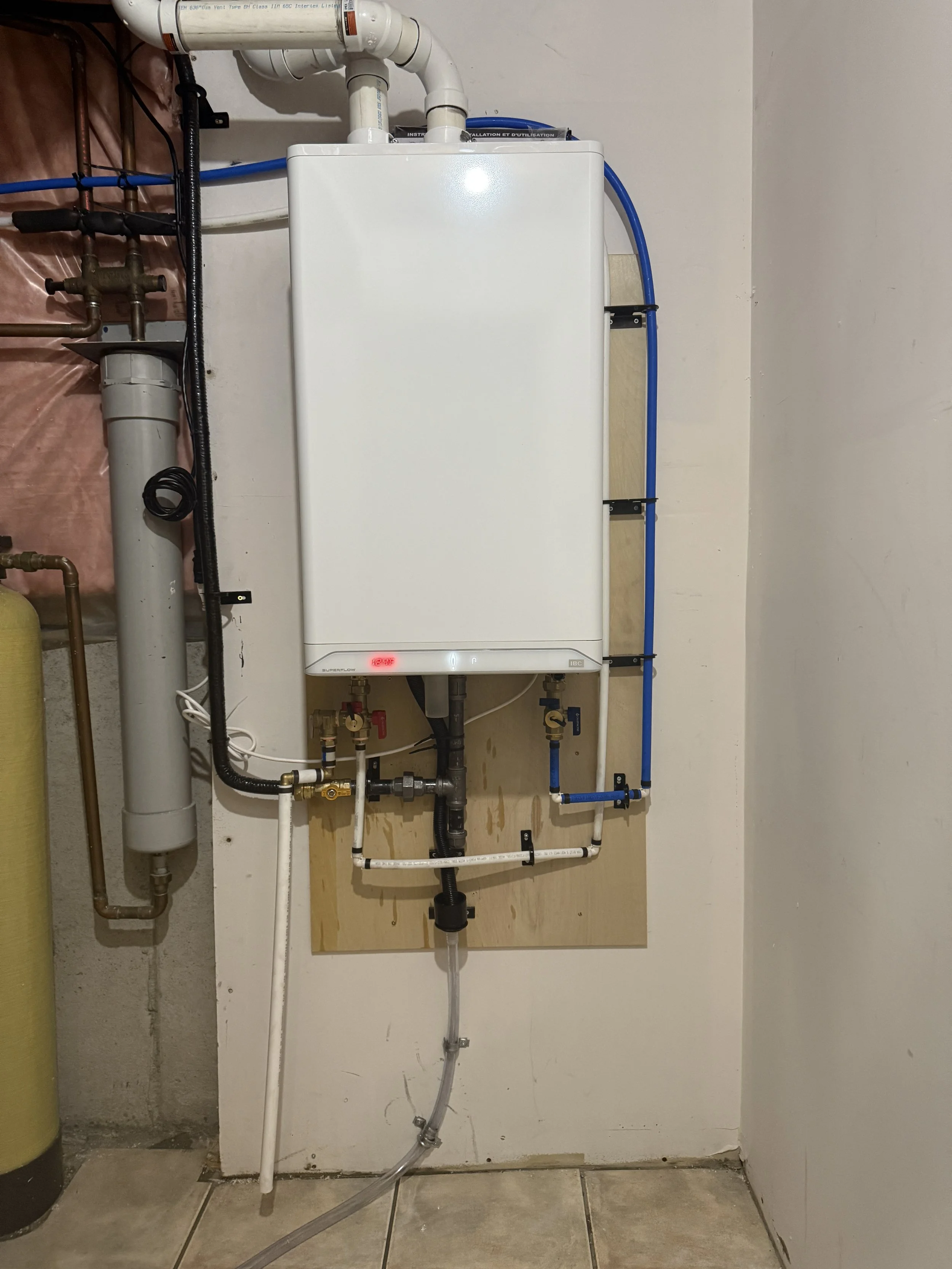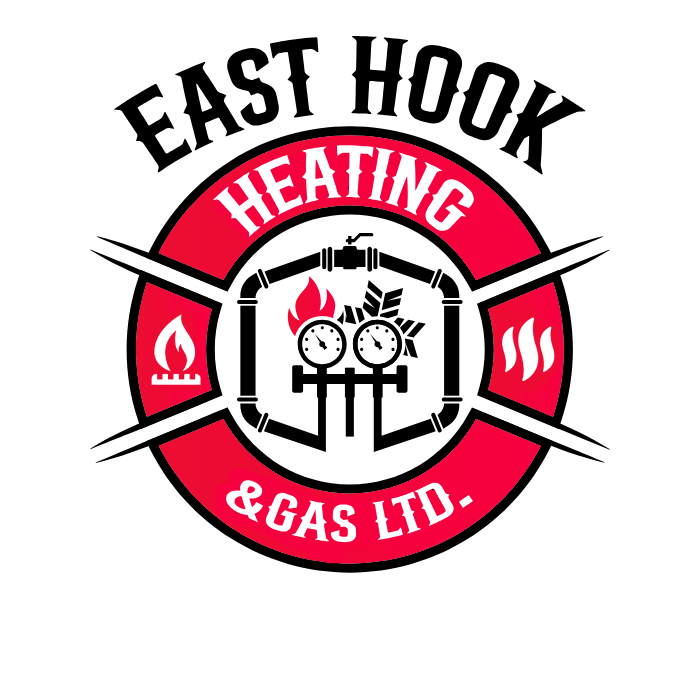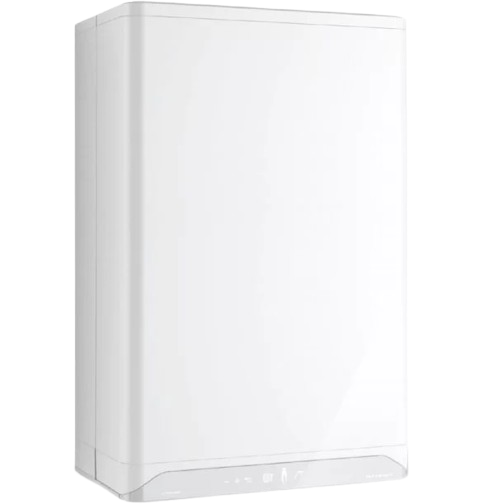WATER TANK & EXPANSION TANK REPLACEMENTS
At East Hook Heating & Gas, we install and service tankless water heaters for homeowners who want endless hot water and high efficiency in a compact package. Instead of storing hot water in a tank, these systems heat it only when you need it—saving space, cutting down on wasted energy, and keeping the hot water flowing no matter how long the shower runs.
See our FAQ for any general questions you may have!
WHY CHOOSE A TANKLESS?
Endless Hot Water – Perfect for families or anyone tired of running out mid-shower.
Space Saving – Compact wall-mounted units free up valuable floor space.
Energy Smart – No standby losses from heating a full tank 24/7, so you only pay for the hot water you use.
Long-Lasting – With proper maintenance, tankless systems can outlast traditional tanks.
Brands We Trust
At East Hook, we recommend trusted brands like Navien, Rinnai, IBC and Rheem for tankless installs. These manufacturers have proven themselves in Canadian homes, delivering reliable performance and strong warranties. But as always—the choice is yours. We’ll give you our opinion, walk you through the options, and set you up with the best system for your home.
A tankless water heater is only as good as its install. From gas lines and venting to water connections and code compliance, East Hook Heating & Gas makes sure every detail is handled right the first time. That means maximum efficiency, safety, and a system you can depend on.
Tank vs. Tankless Water Heaters – Quick Comparison
Hot Water Supply is Limited by tank size (can run out). Endless hot water on demand with tankless.
Space Needed is Large floor space. Tankless units are compact wall-mounted units.
Energy Use is Heats 24/7, higher standby loss. Tankless units heat only when needed, more efficient.
Upfront Cost is lower initial price. Tankless units are a higher initial investment.
Lifespan~8–12 years and Tankless units~15–20 years (with maintenance).
Best For homes with standard hot water needs. Tankless for large families, many washrooms, high-demand homes, space-saving installs.

FAQ: Tankless Water HeaterS 101
-
Yes — as long as the unit is sized right for your home. A tankless heater heats water on demand, so you never “run out.” But if you’ve got multiple showers, laundry, and the dishwasher all going at once, the system can only produce so much at a time. That’s why we size it properly before install.
-
Generally, yes. Tankless only fire up when you open the tap, so you’re not paying to keep a big tank of water hot all day. That usually means lower energy bills over time.
-
With regular maintenance (like descaling every year or two), tankless heaters often last 15–20 years—longer than most traditional tanks.
-
Not a lot, but they do need attention. The main thing is flushing and descaling to keep minerals from building up inside. We recommend a check-up every year to keep things running smooth.
-
Yes, tankless heaters cost more than a standard tank up front. But they usually pay back over time through energy savings and longer lifespan.
-
Definitely. They’re wall-hung and compact, freeing up floor space where a bulky tank would sit.
-
Not always. Homes with huge hot water demand at the same time (like multiple showers running constantly) might still benefit from a larger tank or even a combination setup. But for many households, tankless is the perfect fit.
-
Most times, yes. Tankless heaters fire at a much higher BTU than a standard tank, which often means upgrading the gas line to handle the load. We check this during our estimate so there are no surprises.
-
Tankless systems use sealed direct venting, which usually means new PVC or CPVC piping to the outside. In most cases, we can’t reuse your old metal tank vent — but we’ll set it up properly and safely for your new system.
-
A straight tank swap can be done in a few hours. Tankless installs take longer — usually most of the day — because we’re running new venting, possibly upgrading the gas line, and making sure everything is dialed in.
-
Tankless systems need electricity to fire the burners and run controls, so no hydro means no hot water. A backup generator or battery system can solve that if outages are a concern. A storage hot water tank is also an option we can investigate.
Disclaimer: Unit availability is subject to seasonal demand, inventory levels, and other factors. While we may not have the exact unit you're looking for, we will gladly recommend a comparable option that meets your needs.





